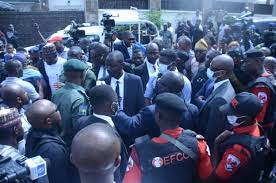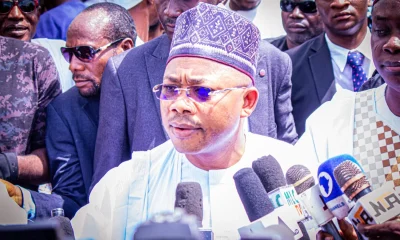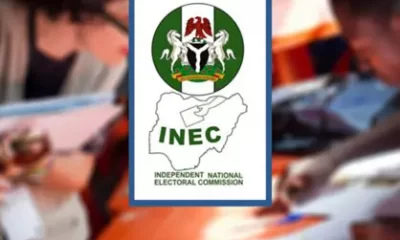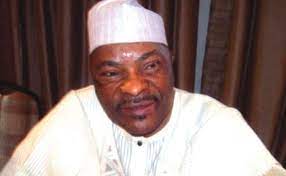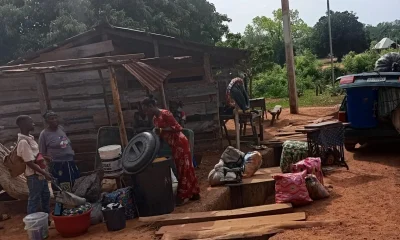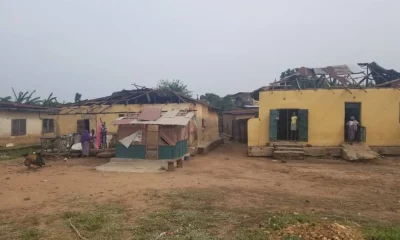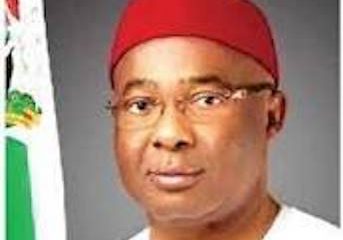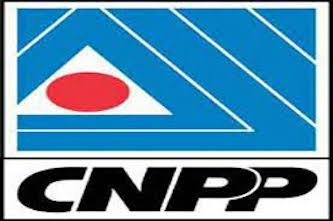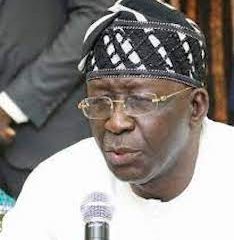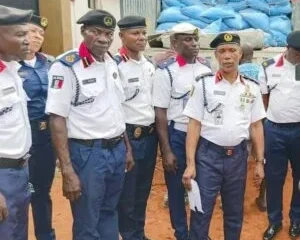OPINION
Between Gov. Bello and Engr. Wada
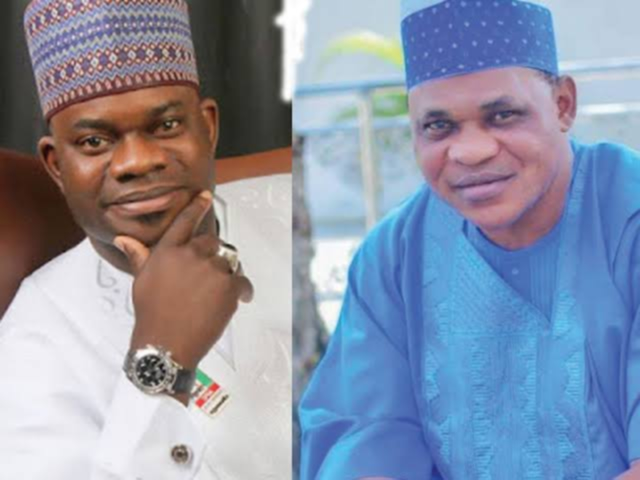
By Valentine Opaluwa
Between the two major contenders for the November 16th Governorship election in Kogi State there is every need for objective analysis and assessment of the candidate of All Progressives Congress (APC), the incumbent Gov’, Alhaji Yahaya Adoza Bello.
and that of Peoples Democratic Party (PDP), Engr. Musa Wada from the positions of strength and weaknesses because both candidates are clearly the leading hopeful in the run up to the election.Looking at Govr, Yahaya Bello the APC candidate from position of strength is the incumbency factor which confers on him an advantage.
More so, that the ruling party at the federal level is APC.GYB as a sitting governor has the privilege of the support of all or most of the political appointees like commissioners. special advisers, board members at Federal and state levels, the local government chairmen in the state and of course, the legislative arms both at the National and the State Assemblies, where 25 members are of the ruling party.
There is also a strong notion among some APC members that “federal might” would be deployed to aid APC and GYB to win the election and secure a second term in office by all means. Therefore, GYB can be considered as a strong candidate given the apparatus at his disposal and his capacity to use his foot soldiers who are already brewing for political thuggery and brigandage.
In fact, spectacularly political office holders are desperate and like they did in the last general election, they may also carry A.K. 47 and other arms to influence the outcome of the election in favour of GYB, the “White Lion”. Also GYB as sitting governor has a large purse therefore has plenty of resources to throw around in other to curry support of some people and do vote buying if possible.
On the other hand, Engr. Musa Wada, the candidate of the Peoples Democratic Party (PDP), position of strength lies in the fact that the party has been dominant in the state and produced the governors since 2003 until 2015 when it lost the baton of leadership in a very controversial way to Governor Yahaya Bello of APC. Therefore, the party has strong political structure across the 21 local governments area in the state.
Another position of strength for Engr. Musa Wada is that he does not have any political baggage working against him ;he has no corruption case hanging on his neck as a retired civil servant.
Also before he ventured into politics, he was well known by many people in the state especially in Kogi East where he hails from and given the circumstances that surrounded his emergence in the PDP primary election he does not have a known political godfather that can impede on governance of the state if he is elected. Another strong factor in favour of his candidacy is the fact that Engr. Wada is well educated and has vast knowledge of administration coupled with the fact that he is known to have unquenchable desire to render service to the people for some times now there, his emergence on the political soup opera is not accidental.
He is from Kogi East where the bulk of votes for Kogi State governorship reside and lastly which by no means the least, is that GYB’s administration is acknowledged to have received huge fund from the federal government in the name of Bailout fund, Paris refund, Infrastructure fund, Ecological Fund and Internal Generated Revenues yet the civil servants, teachers and pensioners in the state are owe salaries for months, some for more than 30 months and in the same vein, the government has not completed any infrastructural projects a side from the Revenue House in Lokoja.
In fact, since he came into office about four years ago, President Muhammadu Buhari or Vice President Prof. Yemi Osinbajo have never commission any project executed by the All Progressives Congress (APC) led administration of Govr. Yahaya Bello. This is a source of strength for Engr. Musa Wada of the Peoples Democratic Party (PDP).
Now what are the weaknesses of Governor Yahaya Bello as the incumbent governor of Kogi State? Even though, Bello inherited an outstanding salary of two months owe the state civil servants by his predecessor, Capt Idris Wada.
Graciously, President Muhammadu Buhari upon assumption of office met this debt burden across the states. Many governors were owing workers salaries as delicate as the issue of workers salary is to the economy and well-being of the citizens. Let call it Buharinomic, bailout funds that were secure for the states made it possible to overcome the challenges of payment of workers salary every month.
Alas Kogi State government under Govr. Yahaya Bello was receiving the bailout fund but was not paying the workers adequately and promptly and in some cases no payment at all. In the name of screening exercise, he oppressed the civil servants, teachers, pensioners and of course the good people of Kogi State. Conducting screening exercise to weed out ghost workers is a noble idea but it was done in a shady manner with a pre – conceived mind.
Kogi State became notorious place of attention, as the workers cried out, some of them committed suicide; a Director Mr. Soje hung himself and the reason for the act was that he could not fend for himself and family because he was not receiving salary. There were those who died in the course of traveling to Lokoja for the screening exercise that was simply a conduct pipe and tool of oppression and denigration of Kogi State workers and people.
Secondly, despite the huge resources that Govr. Bello has received from the federal government he has not executed infrastructural projects like roads, housing, or venture into solid minerals that is scattered across the state, education has not fare better. GYB was ensued in bitter acrimony with lecturers at the state owned University in Anyigba. He did the unthinkable by proscribing ASUU, a power which was not his but needed to display arrogance. Many professors and senior lecturers left the citadel of learning which was once reckoned as one of the best state owned in the country.
Thirdly, the populace groins in pain and penury because most of them depended on salary paid their father and mother to go to school, to pay fees, to feed the family and provide health care services in the case of ill health. Some extended family members depend on their brother, sisters, sons and daughters to make end meet and take care of bills. The absence or inadequate salary makes it difficult for them to get the support and assistance they normally recieve from their family members, relations and friends.
Fourthly, Gov. Yahaya Bello belongs to the Ebira Okene ethnic group and since he came to power as a result of the sudden death of Prince Abubakar Audu of blessed memory’ he has been trying to erase the foot print of his predecessors in different ways, the destruction of architectural master pieces in different roundabout in the state were removed. He once ordered the arrest of Alhaji Mohammed Audu, the first son of late politician on thump up charges.
GYB did not hide his deep hatred and animosity towards Igala people. This can be easily be seen from his appointments. As a matter of fact, key commissioners were only reserve for the Ebira and Okun people. Can you imagine this anomie in a state where the people of Kogi East, the Igala and the Bassa are clearly in majority, none was found worthy to serve as Commissioner for Finance, Commissioner for Works, Commissioner for Health, Commissioner for Local Government and Chieftaincy Affairs, Commissioner for Agriculture, the Speaker and the SSG are from Kogi West and impactful positions like SDG, Local Government Service Commission has not been occupied by an Igala man under GYB’s administration. Even though, for reason of survival some Igala youth are supporting his re – election especially the appointees and those he procured victory for in the State House of Assembly and those at the National Assembly. One good turn they say deserves another since personal interest is a strong variable in the whole gamut of politics.
However, they are very insignificant to sway majority of the votes from Kogi East for GYB who has treated the people of Kogi East so unfairly despite being the people that paved the way for him to become governor. Certainly it was not the Ebiras and Okun that gave him majority of the votes in the All Progressives Congress (APC) primary election in 2015 which he took second, and it was on that premise that he was nominated to replace Prince Abubakar Audu who was already cruising to victory in that election.
GYB has displayed crass ignorance of governance by choosing the path of oppression, dictatorship and pretentious hate for a section of the state. He is attempting to divide and rule the people of Kogi East, so as to incapacitate them politically but from all indication it is a mirage, because his supporters cannot give him up to 15% of the votes that will be cast in Kogi East in a free, fair and credible contest.
Fifthly, GYB does not have a grip on Kogi West Senatorial District where Senator Dino Melaye represents before court nullified his election on technical ground. At the moment two House of Representative seats that were deemed lost by the People Democratic Party (PDP) has been overturned by the Court of Appeal that of Honourable Shaba of Lokoja/Koton-Karfe Federal Constituency and HonourableTijani Yusuf of Kabba/Ijumu Federal Constituency.
Moreover, the appointees of GYB from Kogi West from the Secretary to the State Government, Speaker of the State Assembly, Commissioners and Special Advisers are not well known politicians who have the people on their side aside Senator Smart Adeyemi, most of the experienced politicians that decide the outcome of election in Kogi West are in the Peoples Democratic Party (PDP), namely Chief Shola Akomode, Gen. Jemibewon, Brig. Tunde Ogbeha among others.
While the weaknesses of Engr. Musa Wada are that he is a very independent minded person and would not have become the candidate of Peoples Democratic Party, if he does possess this attribute. He contested the PDP primary against all odds. He was persuaded by elders and younger men to step down for his elder brother, the former Governor of Kogi State, Capt. Idris Ichala Wada but he never budge, he was seeing beyond the request for him to step down.
Abubakar Ibrahim Idris, the son of former Governor of Kogi State, Alhaji. Ibrahim Idris was also contesting and had the support of his father-in-law, His Excellency, Ibrahim Idris, again he refused to succumb to pressure to step down. Engr. Musa Wada was not considered as a front runner in the primary election, but he was far ahead before the disruption during the last stages of the primary election.
In politics especially on our climes, an independent person is often seen as one who would not like to compromise thus supporting an independent minded person is not common. However, independent minded personality which appears to be a weakness in Engr. Musa Wada is a source of strength because an independent minded person is better for the people of the state than a yes man.
Again the fact that he is a younger brother to Captain Idris Wada the former governor some people are likely to see it as perpetuation of one family in power but that story is not flying among many people. Given the way he emerged and the failure of leadership of the magnitude we are having in Kogi State getting somebody like Engr. Musa Wada is good omen, that the state can be in a safe hand who would be driven by people centred leadership to enhance genuine development. He has the capacity and characteristics to advance the cause of the state positively and he is seen as such a leader by many well meaning Kogite of different shades of opinion and persuasion as things stand.
He does not have the resources to withstand GYB in terms of money for the election. However, luckily for Engr. Musa Wada his campaign is more like a movement and volunteers are many because of the strong desire for change of government for the better. Even though money for logistics and so on and so forth is necessary, it has become people project and that means individual donations is now driving the campaign and you know PDP is behind Engr. Musa Wada in totality.
The power of the people to demostrate their will to get freedom from oppressive leaders, be it monarchy and dictatorship is legendry in human history and about to be repeated. This time, it is about revolting against a young leader who came to power through providence but instead disgrace the very people who are the very essence of political leadership and democracy.
Engr Musa Wada seeming weakness has been eroded by the prevailing situation in Kogi State. Therefore, in comparision, while the strength of GYB is rooted in using anti-democratic forces to change the will of the people in the forthcoming election, Engr. Musa Wada is widely accepted not only in Kogi East but in Kogi West and of course Kogi Central. Therefore, in a free and fair contest, GYB is not popular enough to get 25% of the vote cast across the three Senatorial Districts in the state. The reason is simple, most civil servants, teachers, and pensioners would not vote for him and many others who are their beneficiaries and the generality of the people of the state because of the poverty and lack of democratic essentials which characterize his administration since he took the reign of power in 2016.
#Mr Opaluwa, a social commentator writes from Abuja
OPINION
Ending the Menace of Oil Theft in Niger Delta

By Braeyi Ekiye
Standing up for justice and vocally too, is about standing up for each other. It is our duty to speak for the nation’s lingering ills to be corrected, particularly when others cannot speak up. That is the critical power of the voice for the reconstruction of the Nigerian State to attain the desired real nationhood.
Former governor and now a senator representing Bayelsa West, Seriake Dickson recently stood up to be counted on a serious national issue; oil theft and its debilitating consequences on Nigeria’s economy and security.
Answering questions on a programme at Channels Television recently, Dickson pointedly accused some very important personalities from Lagos and the Federal Capital Territory, Abuja for being behind oil theft in the Niger Delta.
Hear the Senator:” The Official system and oil companies are beneficiaries of oil theft in the Niger Delta”. Dickson bemoaned the absence of national values which he said, makes people to use the nation’s resources for selfish gains.
“People from Abuja and Lagos are the masterminds and the official system is not ignorant and not innocent. The official security system, the official oil system, the official federal system, all of it in its entirety. It’s a powerful system,” he stated.
Dickson wondered why a country like Nigeria that has been producing oil, exporting oil for the past 70 years was unable to have scientific way of metering, recording what leaves, what is pumped, what is sold and what is not sold? He concluded that it was a deliberate attempt at bleeding the country of her financial and economic wealth through illegal bunkering, superintended by local, national and international oil theft collaborators.
It is instructive that the Nigeria Extractive Industries Transparency Initiative (NEITI), had in November 6, 2023, through its Executive Secretary, Ogbonnaya Orji, said that oil theft was an emergency that posed serious threat to oil exploration and exploitation with huge negative consequences on economic growth, business projects and profit earnings by oil companies.
Orji stated that as a result of NEITI being a member of the “Special Investigative Panel on Oil Theft and Losses”, the organisation was aware that: “Oil theft is perpetrated mainly through pipeline clamping, illegal connections and major pipeline exploitation of abandoned oil well heads, pipeline breakages and vandalism of key national assets to illegally siphon crude into waiting vessels stationed in strategic terminals”.
NEITI maintained that it was a matter of fact that many members of the pipeline’s association were directly and indirectly involved in providing the skills and knowledge required to carry out oil theft.
Orji therefore, condemned the association for failing to put in place stringent regulations and appropriate sanctions to check involvement of their members.
While being hopeful that President Bola Tinubu’s leadership would spring a surprise to douse the fears, the apprehensions of critical Nigerian minds, like Senator Dickson, Ogbonnaya and many others, there is the compelling need for this administration to seriously interrogate this malignant ulcer on the nation’s oil industry. There is also the need to critically examine NEITI’s unsolicited solutions to the problems of oil theft that have held Nigeria’s economy prostrate and her developmental framework for accelerated growth in all facets stunted.
NEITI in a report titled: “Nigeria’s Battle With Crude Oil Theft: A Total of 4,145 Cases Since May 2023,” published by Arise News on November 23, 2023, revealed a staggering number of highlights of the severity of the issue at hand.
Also, in its weekly: “Energy & You” series aired on the NTA News Network, the NNPCL noted in Episode 7 that 344 crude oil theft incidents were recorded between January and April 2023. Meanwhile, by Episode 8 of the weekly NTA television series, NNPCL shared reports of crude oil theft incidents. A summation of crude oil theft incidents recorded between episode 8 (May 2023) and episode 30 (October 2023), revealed that a total of 4,145 crude oil theft incidents were recorded between May 2023 and the second week of October 2023.
According to NNPCL records, some of the more active hotspots for crude oil theft in the Niger Delta include; Ohaji-Egbema, Oguta (Imo), Ogbia, Imiringi (Bayelsa), Obodo-Omadino, Ughelli (Delta), and Egorobiri creek, Gokana, Iba community, Emuoha, Rumuji, Degema (Rivers).
Nuhu Ribadu, the National Security Adviser, had revealed in August 2023, that: “the country was losing 400,000 barrels of oil per day to crude oil thieves”. This led to commentators insisting that the persistence of crude oil theft in Nigeria lays bare the deep-rooted issues of corruption and severity of vulnerabilities in the country.
That, Nigeria lost more than ₦4.3 trillion naira to oil theft in five years, stolen in 7,143 pipeline vandalism cases is not news. NEITI had revealed this startling loss at the Nigeria Interventional Security Conference in Abuja, with the theme: “Bolstering Regulations, Technology and Security for Growth”, way back in November 2023. The conference was organised by the Pipeline Professionals Association of Nigeria. In a presentation at the conference, NEITI, the federal government agency, revealed that oil theft and losses in Nigeria have become a national emergency, and shall I say, a monumental embarrassment to the country.
Recently, Senator Munir Nwoko, representing Aniocha/Oshimili Senatorial Constituency shed more light on this disturbing matter. Nwoko said that certain security officials whose primary duty is to safeguard oil and gas assets, are actually complicit in this illegal trade. “They are driven by the financial gains associated with illegal activities”, the distinguished senator said.
The crude oil theft network encompasses a broad spectrum of individuals and groups as Senator Dickson rightly pointed out at the Channels TV interview and corroborated by NEITI. It involves foreign oil traders, shippers, bankers, refiners, top-ranking politicians and even military officials.
Providing data from the agency’s reports to back his claims, NEITI’s Orji, said: “NEITI in the last five years, 2017-2021, has found that Nigeria recorded 7,143 cases of pipeline breakages and deliberate pipeline vandalism resulting in crude theft and product losses of 208.639 million barrels valued at $12.74m or N4.325 trillion. NEITI reports also disclosed that during the same period, Nigeria spent ₦471.493 billion to either through repairs or maintenance of pipelines.
The criminal exploits, NEITI said, takes place, ‘most times in atmosphere of communities’ complicity and conspiracy of silence. This, therefore, calls for the Tinubu administration to swiftly swing into action to put an end to this dastardly act, or at least, reduce it to the barest minimum. After all, the state security agencies for effecting a quick resolution of this matter are at the president’s beck and call.
It would also be recalled that NEITI released empirical data of oil theft and losses way back 2009 and 2020 to the staggering figure of 619.7 million barrels of crude, valued at $46.16 billion or ₦16.25 trillion. In addition, Nigeria lost 4.2 billion litres of petroleum products from refineries, valued at $1.84 billion at the rate of 140, 000 barrels per day, from 2009 to 2018. Thus, the total value of crude losses between 2009 and 2020 is higher than the size of the country’s reserves and almost 10 times Nigeria’s oil savings in Excess Crude Account, NEITI said.
So, how long shall Nigeria continue to condone these criminal activities? The country’s inability to proffer answers to these questions will continue to keep Nigeria in a state of coma in her overall developmental strides, including her peace, unity and security.
Ekiye writes from Yenagoa, Bayelsa State.
OPINION
NIN-SIM Linkage and the Nigeria We Desire
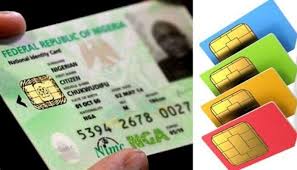
By Tunde Akanni
Rights and responsibilities are the twin words that best describe the inception and the increasing impact of digital technology, a major strand of which is the dynamic contemporary telecommunication services. Even before the imminent(?) internet of things (IOT), a lot is playing out for human civilisational process throwing up existential challenges for citizens and duly requiring governmental interventions to cope with.
If only to safeguard innocent citizens from the antics of criminals, government is often quick at fashioning laws and penalties for violations.
The most far reaching legal intervention in this context is the Cybercrimes Prohibitions Act of 2015 with its most significant component being the Cybercrime Advisory Council. Incidentally, this Council is considered rather exclusionary by media and allied rights advocates.The said deficit of the Cybercrime Advisory Council is a pointer to the fact that in climes such as ours, not much attention is often given by government to social needs, specifically in this case, Media and Information Literacy, MIL, already over hyped by the informed stakeholders. Unfortunately, some undiscerning members of the society keep falling falling victim of related laws.
Please follow this pathetic story, the audio of which I keep till date: Muhammad is a private school principal at Nyanya, an Abuja, suburb. As a side hustle, he runs a Point of Service (POS) business for payment. Then came a criminal one day who had just robbed and killed his victim. Using his victim’s card, he requested two transfers of N500,000 each.
The criminal made several other purchases and also went to some other operators of POS. Eventually he was found out and law enforcers had to track all transactions he had carried out with the victim’s card. Muhammad of Nyanya thus became a suspect and was promptly arrested. Thus began endless investigations… Muhammed ended up being detained for months in a prison.
You can imagine the psychological torture not only for Muhammad but his immediate family, employers and others who love him. He learnt his lesson in the bitterest way yet his ordeals could have been averted by sufficient exposure to basics of MIL. But life goes on. Indeed, it must be business as usual
Otherwise how do we explain the cacophony playing out after the expiration of the deadline of 29 March for NIN-SIM linkage? The Nigerian Communications Commission (NCC) has confirmed that it would not be reviewing its deadline to bar owners of more than four SIM cards whose SIM registration data failed to match their National Identity Number (NIN) data.
The Commission explained that its position was hinged on its objective to clean the country’s SIM ownership database, and ensure that criminals could not take advantage of having multiple unlinked SIMs to carry out their nefarious activities. The Commission’s resolve is hinged on the need to close in on the chaos of untoward ownership of multiple SIM cards with unverified NIN details. According to the Commission “we have instances where a single individual has over 10,000 lines linked to his NIN. In some cases, we have seen a single person with 1,000 lines, some 3,000 plus lines. What are they doing with these lines?
The NCC has also provided Mobile Network Operators (MNOs) an extension till 31 July within which they are expected to verify all NINs submitted by subscribers with four or less SIMs, as well as bar those whose NIN fail verification with NIMC.
The Chairman of Association of Licensed Telecommunication Operators, Gbenga Adebayo, further confirmed that members of his association would comply.
However, just the next day or so after the deadline expired, yours sincerely sighted no fewer than three reports announcing the extension of the deadline, one of them stating specifically to 31 July, referring to some reliable inside source.
What’s all the fuss about really? This NIN-SIM linkage is a simple exercise that only requires a subscriber to submit his or her NIN to the service provider to enable the service provider match details of the subscriber taken at the time of initial SIM registration process. This could be done through assorted windows including physically by visiting designated points. For techno-literate persons, they are merely expected to use short, universal codes for both submission and retrieval for those who may want to verify their own compliance as the media kept repeating deadlines.
The reality today is that barely literate persons and even illiterates now use telephones given its increasing centrality to a lot of human activities. This is the basis of this writer’s advocacy for an earlier generalist nomenclatural label suggestion of “Digital Culture” in place of “Digital Economy” preferred by Minister Ali Pantami when he chose to rename the ministry he was asked to superintend over (https://www.thecable.ng/digital-culture-or-digital-economy)
Telecommunication industry players have been unequivocal about the key benefit of NIN-SIM linkage being the protection of subscribers and prevention of crimes such as exemplified above. For instance, on account of the huge amount involved, the POS operators may have documented details of whatever identity provided by the criminal. As a matter of fact, the truth may have been readily revealed in the course of such documentation. But the information literacy knowledge could only have been deployed based on certain pre-existing conditions such as NIN-SIM linkage offers an example.
Still on crime, another major advantage that may derive from the NIN-SIM linkage is the ease with which law enforcers may trace and tackle criminals through their registered lines. Afterall, no one may be allowed to own any line except you are ready to play by the set rules.
Furthermore, this linkage thing will automatically ease economic transactions electronically since identities will be easily verifiable for concerned parties such as it pans out with regards to debit cards and similar devices. NIN-SIM linkage is therefore the way to go and the exercise has to run with a good measure of discipline especially with existing spectacular anomalies of thousands SIMs connected to some individual.
At this stage, the campaigns executed so far need be audited to make for genuine inclusivity with regards to social, geographical and other possible lines. For instance, this task now requires a well designed stakeholder mapping. The mapping must ultimately reveal spots of irregularities and areas as well as interests deserving more attention.
Given that all media genres had been previously deployed perhaps for conventional announcements, how about aligning subsequent dissemination more enriched via regular media contents? How about being more scientific, relativizing media use depending on audience preference and possible perception? In reality this could translate to devolving dissemination more to the grassroots by enlisting the emerging broadcasters namely, community broadcasters and campus broadcasters.
Beyond liberalising the media to be used, campaigns must also be made to align with credible programmes with obvious trendy touch of management such as may ensure their global reach and enduring availability as may be made possible by platforms like Youtube and Spotify.
With affiliation to champions of multi-stakeholder philosophy like the UN’s annual Internet Governance Forum, IGF, for the management of telecommunication facilities, need NCC be reminded of the importance of democratised governance culture?
It is most certain that the involvement of the relatively cheaper (not necessarily technologically inferior) community and campus broadcasters will help to boost the NIN-SIM linkage campaigns and indeed others that may arise in future.
It will as not be out of place for NCC to support the campaigns for the popularization of Media and Information Literacy. This certainly will help to resolve a lot of digital divide inspired issues
With the concern demonstrated on this exercise so far, NCC has demonstrated that it now has an improved corporate governance culture as advocated by IGF (https://punchng.com/nigerias-communication-governance-indifference/ ). It can however do better and even excel.
Akanni is an associate professor of media and development at the Lagos State University. Follow him on X via @AkintundeAkanni
OPINION
The Lessons of Okuama Tragedy
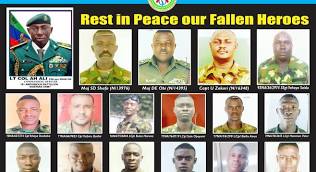
By Michael Owhoko
Has Nigeria learnt any lessons from the Okuama massacre? Will the incident repeat itself or offer profound lessons against a future experience? In the journey of life, no individual or nation or country is immune from occurrences thrown up by circumstance, which may be pleasant or painful.
Lessons from such experiences are deployed to prevent possible future reoccurrence, failing which the same catastrophe would repeat itself.In context, the gruesome murder of army officers at Okuama in Ughelli South Local Government Area of Delta State, which transcends ethnic emotions and was accompanied by wide condemnations, is a confirmation that Nigeria has not, and does not learn from lessons, otherwise the calamity would have been avoided.
The incident was not the first of its type. It had happened previously at Odi, Bayelsa State; Zaki Biam, Benue State; and Gbaramatu, Delta State, yet it appeared that neither the Federal Government nor the Nigerian Army learnt any lessons from the earlier occurrences. This is evident from the Okuama saga, a proof of the country’s insensitivity to bloodshed and exposition of poverty in the policy making process.
This notwithstanding, the Okuama calamity has again thrown up another opportunity for lessons to be learnt. If Nigeria fails again, this time around, to learn from these happenings, then the country risks further carnage, which may possibly take a more complex form, with unmanageable and unpredictable consequences. It may be too costly for the country’s fledgling socio-economic balance and stability.
Therefore, the lessons are crucial and should be identified by government, to be harnessed as feedback for proactive purposes, to forestall future recurrence. It is a tragedy for any country with a relapsing experience, not to have a codified strategy encapsulated in a template to resolve related matters. In specific terms, what then are the lessons and takeaways from the Okuama disaster?
Lesson One: To have allowed a land dispute over fishing rights between Okuama and neighbouring Okoloba communities in Bomadi Local Government Area, Delta State, to escalate means there were no proactive measures and prompt concerted interventions by the Nigeria Police Force and Delta State Government, in response to petitions written by the Okuama community.
The community, through its lawyers, I. Ejedegba and Co., had written a petition to the Commissioner of Police in Asaba, Delta State, which was acknowledged on 31 January, while that written by the community’s leaders to the Delta State Governor was received on 2 February. This was over one month before the gruesome murder of the military officers on 14 March.
Since the Police is the first line of contact and statutorily responsible for civil security matters, they should have waded in upon receipt of the petition, to nip the crisis in the bud, aside the previous joint meetings held among the communities, the Police and the Delta State Government that yielded no solution. Under this development, the Delta State Governor should have been advised to wield the big stick by acquiring the land in contention for public interest, to end the crisis.
Lesson Two: Inviting the Army for a mediatory and peace mission to Okuama for the resolution of a land dispute between two communities that were not at war, was an error in judgement. The dispute was civil in nature, and it was only when the efforts by the Police and the Delta State Governor had failed, and there was evidence of likely escalation into a dangerous dimension beyond the capacity of the Police, that would have warranted the intervention of the Nigerian Army. It is not the responsibility of the Army to broker peace in a civil matter.
Lesson Three: Central to the killing of the military personnel in Okuama is presumably oil. Oil appeared to be the underpinning motive behind the horrendous and senseless killings. Mere land dispute between two communities could not have led to such a mindless massacre. Soldiers are deployed to the Niger Delta region to protect oil facilities, and in the course of this duty, they might have been marked as “enemy” by those profiteering from illegal oil deals.
Those involved in crude oil theft and other illegal activities, including the processing of locally refined products, might see the Army as an obstacle to their business interests. The military high command should have known this, and prepared the soldiers for any possible eventuality and collision with entrenched oil thieves.
The circumstances of their deaths showed that the military men were taken unawares. It was likely that crude oil thieves and other vested interests might have planned and taken advantage of the soldiers’ peaceful disposition to unleash mayhem on them in such a horrific and despicable manner.
Lesson Four: The mass destruction of Okuama by the Army in response to the death of the soldiers, without singling out the culprits, was unhelpful, as innocent children, mothers, the elderly, the sick and even pregnant women, were either killed, rendered homeless or died while trying to escape.
To bring pain on an entire community over the action of a few criminals, is indefensible. Reprisal attacks and collective punishments are incompatible with international law.
It should be recalled that after the destruction of Odi by the Army, the community resorted to litigation and got a favourable judgement, leading to the payment of a N15 billion out-of-court settlement as compensation. Justice Lambi Akanbi of the Federal High Court had condemned the government for a “brazen violation of the fundamental human rights of the victims to movement, life and to own property and live peacefully in their ancestral home.”
Since the Okuama experience is reminiscent of the destruction in Odi, it is likely Okuama may seek redress in the law court for compensation over the reprisal destruction of lives and properties.
Lesson Five: As the President and Commander-in-Chief of the Armed Forces of Nigeria, Bola Tinubu’s order to the Army was too hasty and reactionary, without taking into consideration innocent lives in Okuama that were caught up in the web. Granting “full authority” to the military to bring anybody found to have been responsible for the attack to justice was an obvious blanket licence for the military to invade Okuama.
Instead, the President should have ordered the security agencies and the Police to specifically intervene, identify and arrest the criminal elements in the community, while instituting an independent high-powered panel of enquiry to unravel the causes of the mayhem. A future restraint on the part of the President is imperative to douse tension and minimise further collateral damage.
Lesson Six: The Army’s decision to lock down and lay siege to Okuama without granting access to the Delta State Governor, the Police, humanitarian agencies, and even the press to assess the situation on ground, has given rise to speculations about the plight of the members of the community, particularly the innocent, helpless and indigent persons. This is unhelpful to the image of the Army.
By not allowing access, the Army has unwittingly opened its operations to speculations. For example, it was alleged that the Army killed over 5O persons in Okuama, with other survivors hiding in the bush, including old women, children, the elderly ones and even the sick, with no food to eat or water to drink. This is a gross violation of their fundamental human rights.
To avoid being put on the spotlight, it is imperative for the military to grant access into the community to enable humanitarian agencies and volunteer groups extend help and assistance to the innocent ones, to prevent further fatalities. This will also serve the interest of the Army’s reputation.
Lesson Seven: After the destruction of Odi, initial public sympathy for the military waned. The same is replicating itself in Okuama over the conduct of the Army. The Army, like other Federal Government agencies, is not a supreme institution that is above the Constitution and the Nigerian State, neither is civilian population subject to military laws.
Indeed, the Army is subject to civil authority under a democracy. Therefore, it must change its current tactics at Okuama, where it has refused access to the community, assumed being the sole information provider on goings-on, and subjected civilians to investigation, arrest and detention.
It is hoped that these lessons will serve as reference and guide for the state governments, the Police, the Army and the federal government in the handling of related crises to avert future disasters.
Owhoko, a Lagos-based public policy analyst, author, and journalist, can be reached at www.mikeowhoko.com, and followed on X (formerly Twitter) @michaelowhoko.

